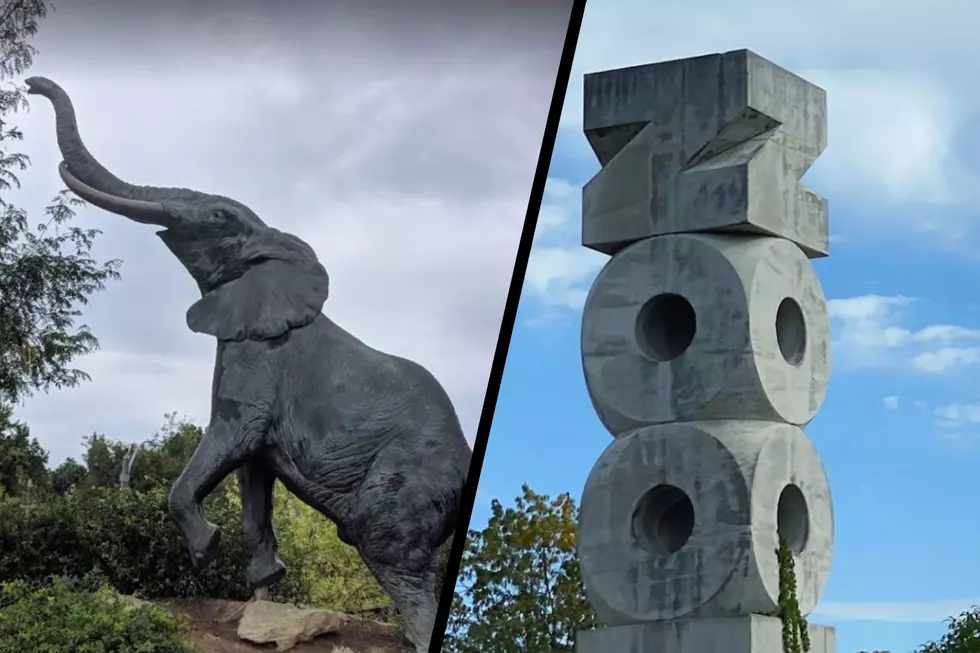![The Legacy of Rodney King – A Reluctant Catalyst for Change [Video]](http://townsquare.media/site/75/files/2012/06/cnn_5-300x197-150x150.png?w=980&q=75)
The Legacy of Rodney King – A Reluctant Catalyst for Change [Video]
When the news came Sunday that Rodney King had been found at the bottom of a swimming pool, those of us who remember "the Rodney King beating" held their breath for a collective second, and said a prayer for the man who once asked, "Can we get along?". In the 20 years Rodney King spent in the spotlight of our consciousness, life had not been easy for him and we knew why. You see, King never wanted to be an American civil rights icon but that's what he became.
King, who was 47 when he died Sunday, found himself in the public eye thanks to a man by the name of George Holliday. On March 3, 1991, King was beaten by LAPD officers after a high speed chase (at times reaching 100 mph) through the streets of Los Angeles County. The chase had ended in front of Holliday's apartment. The beating and arrest of King was so brutal and aggressive that Holliday grabbed his video camera and starting taping. The next day, he turned the tape over to KTLA, the local TV station. KTLA aired the tape and it caused a national uproar over the treatment of King.
Just 4 of the 21 white police officers involved in the Rodney King beating were charged in the crime. An L.A. grand jury refused to indict the 17 other officers on the scene who stood by and did nothing while Sergeant Stacy Koon, officers Laurence Michael Powell, Timothy Wind and Theodore Briseno delivered their assault on Rodney King.
The repercussions of that decision would haunt L.A., and the country, forever.
In May 1992, the Rodney King beating case went to trail. No one argued that King was in the wrong, they argued that the police were wrong in the way they handled the situation.
But the jury disagreed, at 3:15 pm, April 29, 1992, they handed down their verdict. The 4 police officers who were caught on tape beating Rodney King into submission as he lay on the concrete in front of George Holliday's apartment March 3, 1991, were "not guilty".
The world went stone - cold - silent. At 3:49 pm, all hell broke loose at the intersection of Florence and Normady.
I remember watching the L.A. riots of '92 from the living room of my parents home. What I remember is this; the riots seem to have started in the front yard of a home in South Central L.A. A reporter (who was white) was there to get reaction from the crowd about the verdict. I remember the crowds of people started to "turn" on the reporter, yelling and screaming, "What the hell you think we think about it?! It's wrong! It's injustice!".
I remember watching Reginald Denny (a white truck driver) being pulled out of his rig in the middle of an intersection and being beaten by rioters. I will never forget someone stomping on his head or the image of his body laying on the ground next to the wheel of his truck.
I won't ever forget the looters, strolling into abandoned stores and taking whatever they wanted. The buildings burning, set on fire by people who were angry that their feelings and opinions had once again been ignored.
And I will never forget Rodney King appearing on CNN May 1, 1992, to say, "People, I just want to say, can we all get along? Can we get along? Can we stop making it horrible for the older people and the kids?"
When the riots ended six days later, 55 people were dead and more than 2,000 were injured. No less than 1,100 buildings were destroyed by the more than 3,600 fires, some set at a rate of one-per-minute.
A few months later, maybe because of the riots, the same 4 police officers were indicted by a federal grand jury and charged with violating King's civil rights.
The jury in the federal trial returned a much different verdict. Sergeant Koon and Officer Powell were found guilty of violating King's civil rights. Koon was also found guilty of allowing the violation of King's civil rights by the other officers. The other two officers were found not guilty. While a unanimous verdict of guilt would have been preferable, King later wrote in his memoir, it wasn't necessary.
Rodney King did not want to be a catalyst for change in the world, and yet he was. It is because of him significant reforms were brought to the L.A. police department. Gone were "lifetime police chiefs", the largely white police force began hiring minorities and officials worked to resolve tension between the police and minority communities where racial profiling complaints continued to pour in.
In Los Angeles, where Rodney King was beaten, where an entire community rioted against what it perceived to be an injustice against their race, things have gotten better.
So in answer to Mr. King's question, "Can we get along?", we've got a way to go sir, but I hope one day, we do.
![]()
Follow @LittleAnn33
Annie Jenkins | Create Your Badge
More From WGBFAM









